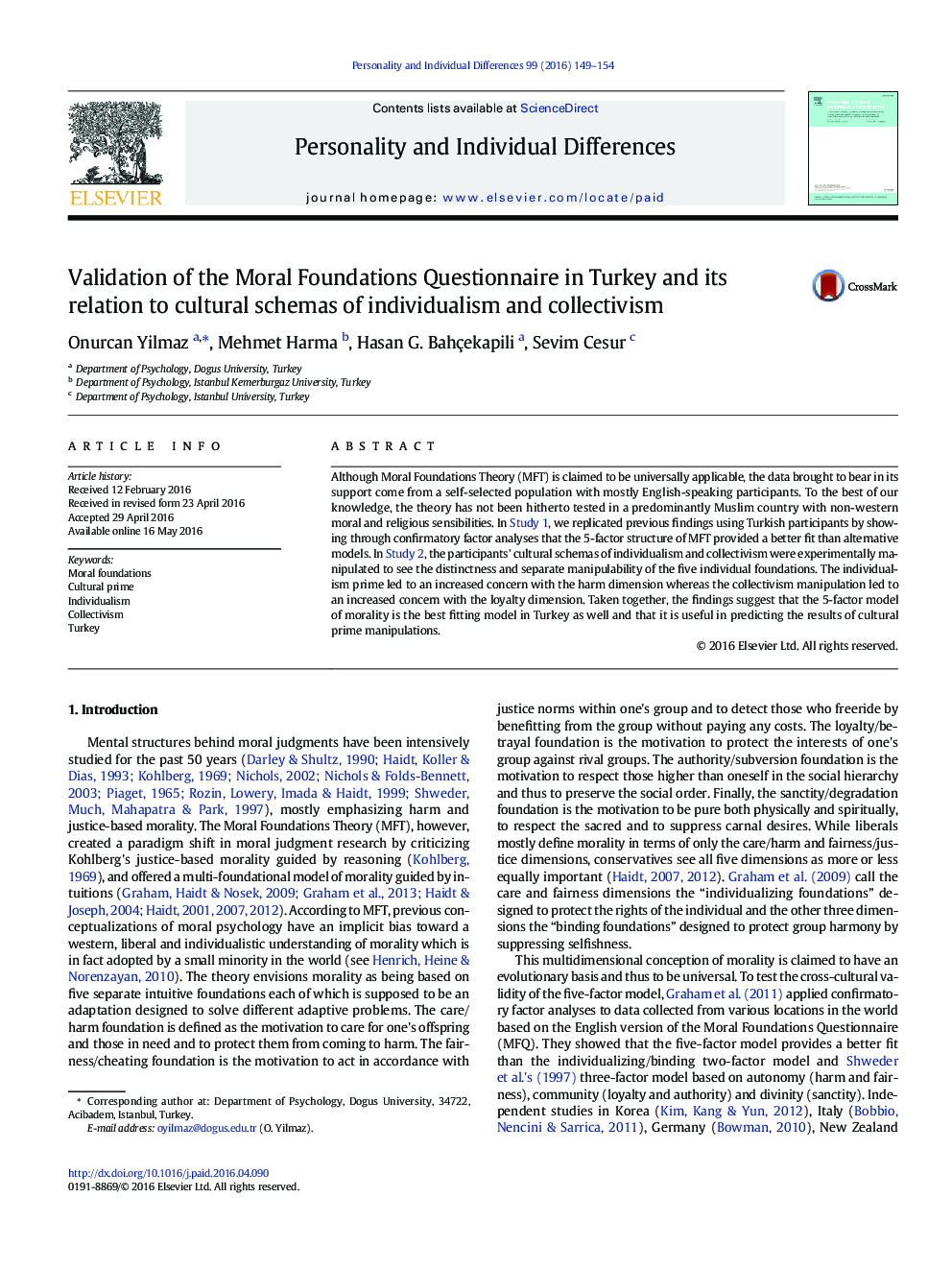| کد مقاله | کد نشریه | سال انتشار | مقاله انگلیسی | نسخه تمام متن |
|---|---|---|---|---|
| 889713 | 1472019 | 2016 | 6 صفحه PDF | دانلود رایگان |
• A CFA was done on the Turkish version of the Moral Foundations Questionnaire.
• Original 5-factor model provided a better fit than alternative models.
• Individualism and collectivism were manipulated to see separate manipulability.
• Inducing individualism makes harm foundation more important.
• Inducing collectivism makes loyalty foundation more important.
Although Moral Foundations Theory (MFT) is claimed to be universally applicable, the data brought to bear in its support come from a self-selected population with mostly English-speaking participants. To the best of our knowledge, the theory has not been hitherto tested in a predominantly Muslim country with non-western moral and religious sensibilities. In Study 1, we replicated previous findings using Turkish participants by showing through confirmatory factor analyses that the 5-factor structure of MFT provided a better fit than alternative models. In Study 2, the participants' cultural schemas of individualism and collectivism were experimentally manipulated to see the distinctness and separate manipulability of the five individual foundations. The individualism prime led to an increased concern with the harm dimension whereas the collectivism manipulation led to an increased concern with the loyalty dimension. Taken together, the findings suggest that the 5-factor model of morality is the best fitting model in Turkey as well and that it is useful in predicting the results of cultural prime manipulations.
Journal: Personality and Individual Differences - Volume 99, September 2016, Pages 149–154
